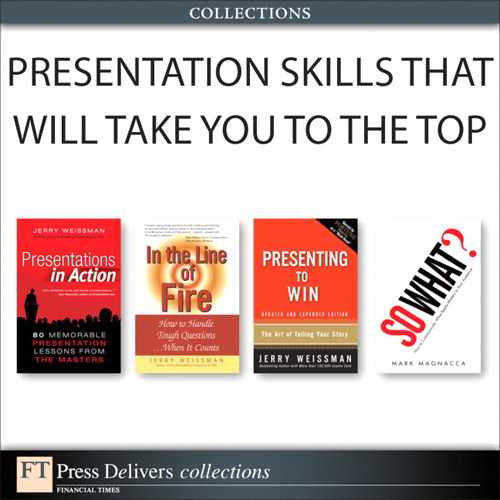51. Fast Talking: Fun or Maddening
An actor named John Moschitta, Jr. once made a career out of talking fast. During the 1980s, Mr. Moschitta appeared in a series of television commercials for Federal Express that promoted the company’s speed of service. In each of the commercials, Mr. Moschitta played the role of a busy executive speaking on the phone, barking orders and wheeling and dealing at more than 500 words a minute. The funny, catchy ads made “The FedEx Man” a household name. You can find a clip of his FedEx commercials on YouTube.F51.1
However, fast talking can also be maddening for presentation audiences. An accelerated pace often causes a speaker to utter “ums” and “ahs.” Speed can also have a negative impact on audiences—particularly for audiences who speak a different language than the presenter. Olivier Fontana, a Frenchman who works at Microsoft Corporation in Redmond, Washington, described his frustration in an email:
One topic that is a pet peeve of mine is talking speed. I always try to make a conscious effort to slow down when I present—not always successfully—and I also try to explain to native English speakers talking to a non-native audience at full speed that they also need to factor the non-native variable [in]to their speech speed. I received feedback from third parties on how they would sometimes lose more than 50 percent of what was said during these full-speed native speaker presentations. I would also highlight that, to a non-native audience, not making the effort to slow down could be perceived as assuming everyone should understand your language (most often than not, English) perfectly—a perception that could, in some cultures, be perceived as quite arrogant.
Ironically, there is a very simple solution for fast talking. No, the solution is not to slow down. You cannot speak slower or faster. Most people cannot alter their native tempo. I was born and raised in New York City, and I speak fast. I cannot slow down. If I were to try to slow down, it would ... sound ... as if ... my ... battery ... is ... running ... out. Instead, I speak very quickly, but I pause between phrases. Pausing controls my tempo. It can control yours.
Every pause offers many benefits:
• Eliminates unwords, such as “um” and “ah”
• Enables you to take a breath
• Gives you time to think
• Gives your audience time to absorb
The absorption time is doubly important for people such as Mr. Fontana and other Frenchmen—and Spaniards, Chinese, Japanese, Russians, Germans, and Italians—because when people for whom English is a second language listen to English speech:
• They must translate the English words into their native language.
• They must interpolate the English pronunciations from the perspective of their own language.
Pauses give non-native audiences time to translate and interpolate. The pause also works in the opposite direction. When native English speakers listen to a non-native speak English with a foreign accent, they, too, must interpolate.
In this increasingly globalized world, the solution for language differences is the pause. Think about that: To help your audience comprehend, it’s not what you do; it’s what you do not do.
Pause.
